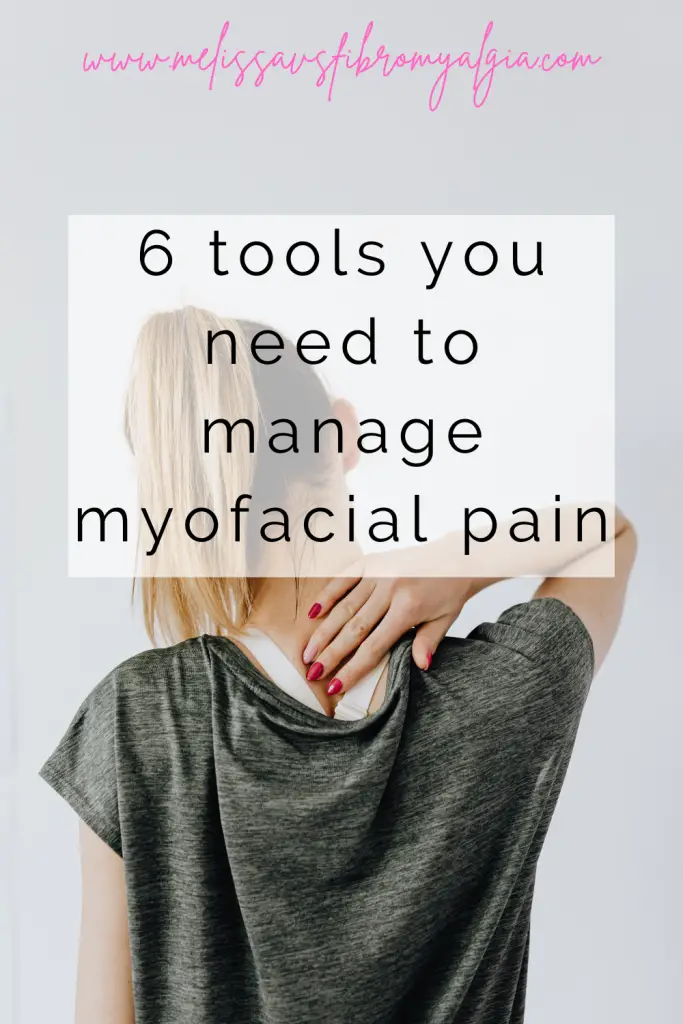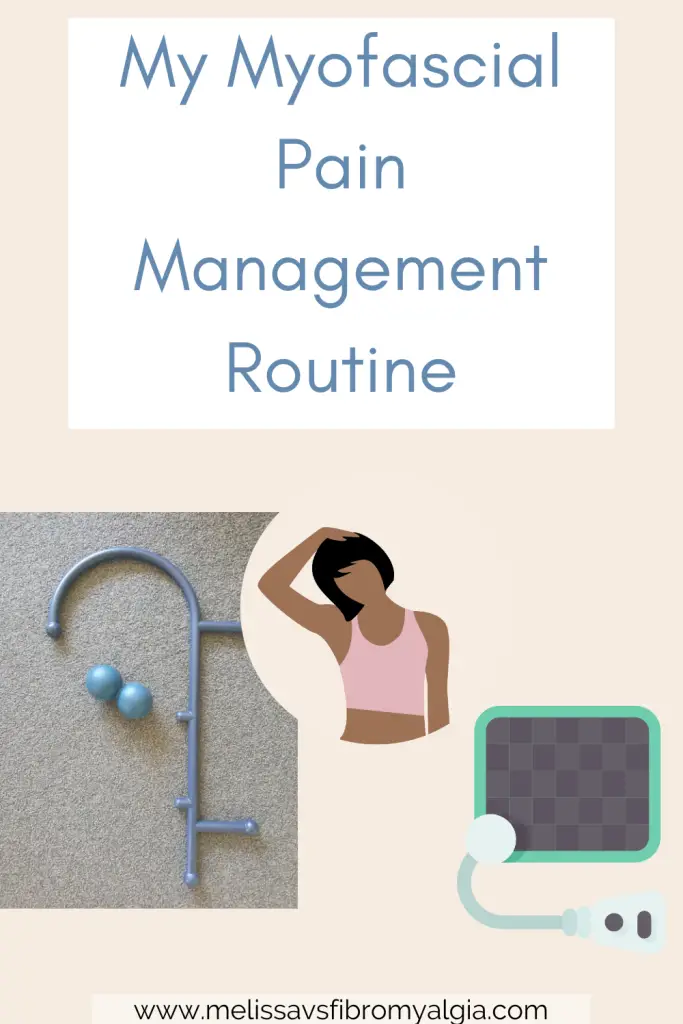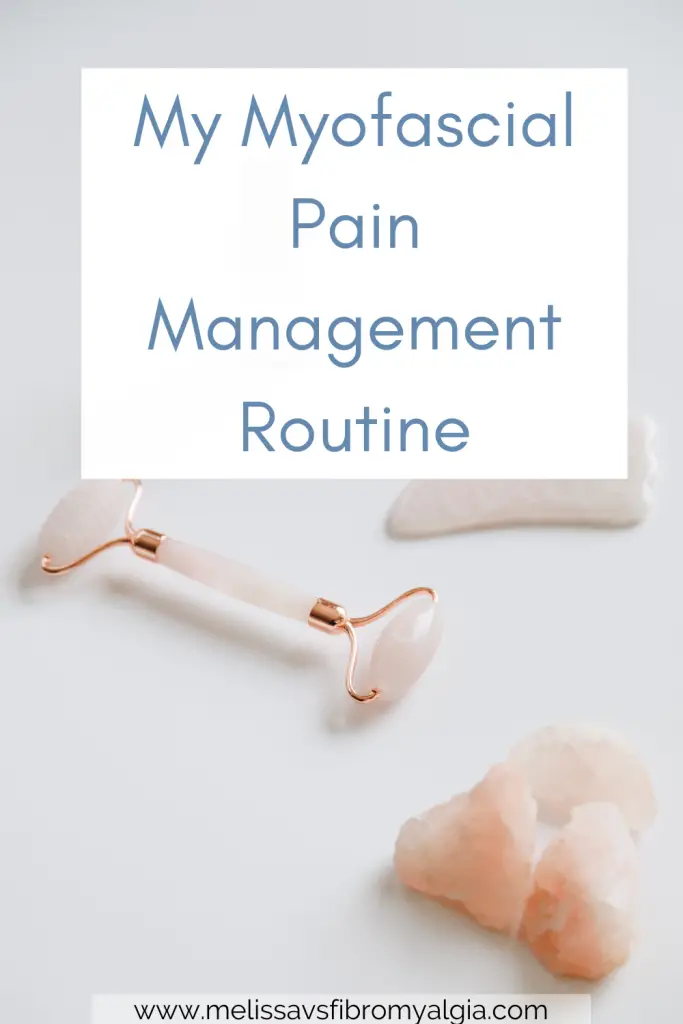Last Updated on June 30, 2024 by melissanreynolds
Let’s talk about my secret weapons of managing myofascial pain and exactly how I use them.

The most important thing to mention, before we start, is that I have a holistic plan in place. We have to address some deep, root cause issues, before pain is going to improve. This includes sleep, stress reduction, pacing well, and much more. The most important parts of my holistic plan are low dose Naltrexone, sleeping better with sleep hygiene and quetiapine, yoga tools for calming the nervous system and much more.
Affiliate notice: Please note that some of my links may be affiliate links. If you make a purchase using one of these links, I may make a small commission at no extra cost to you.
Let’s dive into what I use specifically for managing myofascial pain
Stretching
I have many stretches that I do multiple times a day. Specifically neck stretches and cat and cow. I share these in this yoga class.
Self massage
Self massage of trigger points and tight muscles is something I do throughout the day. Once I notice that I am constantly trying to massage tight and painful muscles, I know it’s time to escalate my treatment options.
Heat pads
I have an electric heating pad and my microwavable one. Both have an important place in my myofascial pain routine. The microwavable one is for the day and the electric is for the night. You can check out these two options below.
One like this for sitting up – microwavable.

Peanut ball
I use this down the length of my spine (the pressure parts on my muscles, no pressure on the spine!) And it does help relieve tension. I use it against the wall. It is so great for relieving tension in my whole back, but especially up in my neck. Check out this peanut ball here.
Traction cradle
This is my most recent purchase. I’ve been very conservative with it as I didn’t want to induce a bad response. So the first day I did two minutes. The second day I did three minutes and used my heating pad straight away. I think it helped. I could feel my body releasing on it. I will update as I use it more. This is the traction cradle here.
Intramuscular Needling
Placing acupuncture needles into the key trigger points let’s them rest, and increase blood flow. Usually my suboccipital points and one in my upper back, depending on where the worst tension is.
EDIT 2024 – I have since replaced intramuscular needling with gentle chiropractic treatments and my trigger points are far quieter with this treatment than jabbing needles into them every two weeks. Read about my chiropractic story here.
My favourite myofascial pain treatments
So what does this look like, practically, across the day? I will start the day with my microwavable heating pad. And come back to it every few hours as needed. I do my stretches and self-massage regularly. I’m trying to remember to spend a few minutes every day using the traction cradle or the peanut ball to help remove tension. And I go to bed with my electric heating pad.
These are mine, what are your favourites? How do you use them?

